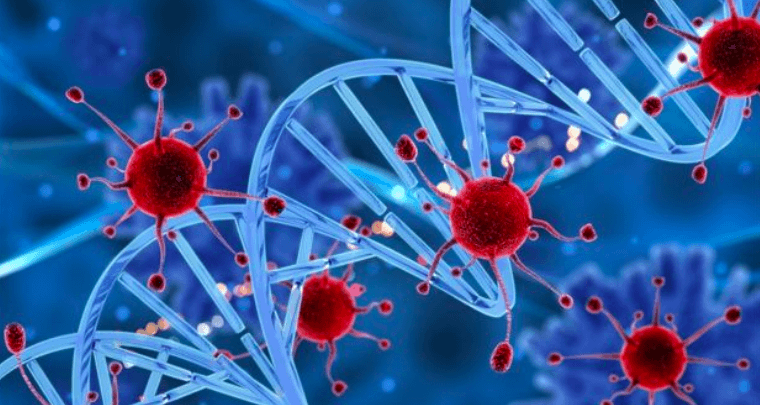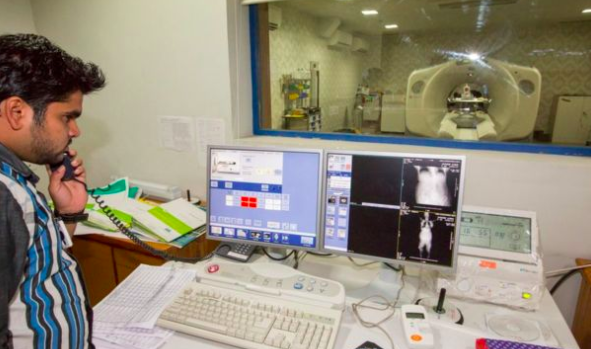Genome Project: A Healthcare Revolution
December 13, 2018 | Expert Insights

A Cambridge research project has sequenced 100,000 genomes from around 85,000 people. The aim is to create a new genomic medicine service for the NHS, transforming the way people are cared for; 1 in 4 participants received a diagnosis for their rare diseases for the first time.
Background
The Human Genome Project (HGP) was an international scientific research project with the goal of determining the sequence of nucleotide base pairs that make up human DNA, and of identifying and mapping all of the genes of the human genome from both a physical and a functional standpoint. It remains the world's largest collaborative biological project. After the idea was picked up in 1984 by the US government when the planning started, the project formally launched in 1990 and was declared complete on April 14, 2003.
When the first human genome was fully sequenced, it had taken 13 years and cost £2 billion. Today, a genome's worth of DNA can be sequenced in only 30 minutes, at a cost of £600.
Genomics is an interdisciplinary field of science focusing on the structure, function, evolution, mapping, and editing of genomes. Genomics can be used to predict how well a person will respond to a treatment or find one that will work best for them, which is called personalised medicine. Genomics can be used to test how well cancer might respond to radiotherapy; for some that can mean far fewer radiotherapy sessions. It can help find people who currently use insulin for their Type 1 diabetes but would do better on simple tablets. Genomics can be used to track infectious disease, precisely pinpointing the source and nature of the outbreak by looking at the whole genomes of bugs.
The 100,000 Genomes Project is a UK Government project that is sequencing whole genomes from National Health Service patients. The project is focusing on rare diseases, some common types of cancer, and infectious diseases.

Analysis
Scientists in Cambridge have completed the world's largest gene sequencing project in healthcare - which brings hope for better understanding of diseases and faster diagnosis.
People with rare diseases, their family members and cancer patients took part.
One in four participants with rare diseases received a diagnosis for the first time. Until now, parents of children with rare genetic conditions typically spent years trying to find out the cause. The 100,000 Genomes Project has ended this "diagnostic odyssey" for many families, and in some cases, led to effective treatments.
Cancer and rare diseases were chosen for the project because both are strongly linked to changes in DNA. Cancer is triggered by mutations in genes, while the majority of rare diseases are also caused by errors in our genome. About half of cancer patients sequenced as part of the project were then able to take part in a clinical trial or receive a targeted treatment.
All the genome sequencing has been carried out at the Wellcome Sanger Institute, near Cambridge, in laboratories run by Illumina, a Californian biotechnology company. The work has been overseen by Genomics England, which was set up in 2013 specifically to deliver the 100,000 Genomes Project.
There are now ambitious plans to sequence one million genomes in the UK in the next five years, as genetic testing becomes more embedded in NHS care.
The project could have implications for pharmaceutical companies: it costs around a billion dollars to develop a single new drug, but 95 out of every 100 promising candidates never make it to the end of the journey. Treatments that seem promising in identikit animals or cells in the lab often falter when faced with the genetically complex reality of human patients.
Counterpoint
This study raises the question of storage: a single human genome contains roughly three gigabytes of data. With plans in place to sequence tens or even hundreds of thousands of individuals around the world, keeping all this information safe and secure is a growing issue.
Assessment
Our assessment is that the sequencing of 100,000 genomes marks an extraordinary UK achievement that is transforming the application of genomics in the NHS, and which could revolutionise healthcare around the world. We believe that understanding more about the impact of genetic variations on the function of potential drugs, or identifying population-specific targets, could help to cut the cost of failure in the pharmaceutical industry's development pathway, and make treatments more accessible and effective to millions of patients.
India Watch
India is home to 1.3 billion human genomes. Although the subcontinent contributes around 20% of the world's population, the DNA sequences of its people make up around 0.2% of global genetic databases. India spends $1 trillion on drugs every year, of which 40% or more are deemed to be ineffective, as many treatments may not work for people with regional variations in their DNA. Genomics and precision medicine could change health outcomes for millions of people in the country, but at present India lacks the genomic data to make such a revolution possible.
With the cost of genome sequencing projected to fall rapidly from $1,000 per genome to just $100 within a year or two, the time would be right for India’s healthcare industry to prioritise precision medicine.








Comments